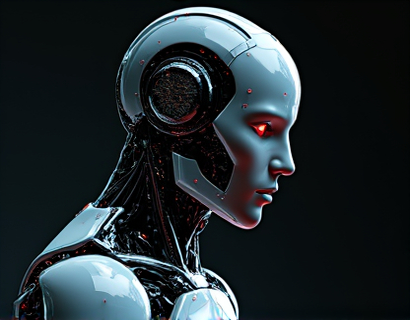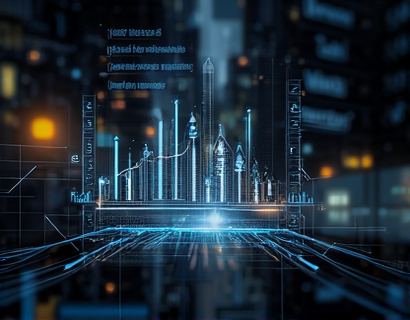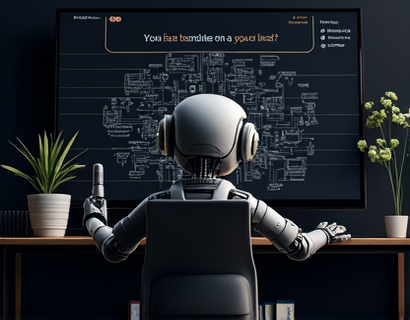Smart Home Transformation: Embracing the Future of Living with Cutting-Edge Appliances
The modern home is evolving at an unprecedented pace, driven by technological advancements and a growing demand for convenience, efficiency, and sustainability. The concept of a smart home has transcended from being a futuristic dream to a tangible reality, where appliances and devices work together to create a seamless and intelligent living environment. This transformation is not just about integrating technology into daily life but about enhancing the quality of life itself. In this article, we will explore the latest innovative appliances that are redefining modern living, offering a glimpse into a future where technology and comfort go hand in hand.
Smart homes are not just about having devices that can be controlled remotely; they are about creating an ecosystem that learns from your habits, adapts to your needs, and simplifies your daily routines. The latest appliances are designed with advanced sensors, AI capabilities, and connectivity features that make them more than just tools—they become integral parts of your home's nervous system. From smart thermostats that learn your temperature preferences to refrigerators that manage your grocery lists, these devices are transforming the way we live, work, and interact with our living spaces.
Smart Thermostats: The Brain of Your Home's Climate Control
One of the most impactful smart appliances is the smart thermostat. These devices go beyond simple temperature control by learning your schedule, adjusting temperatures automatically to save energy, and providing detailed insights into your energy usage. For instance, a smart thermostat can detect when you are away from home and lower the heating or cooling to conserve energy, then pre-adjust the temperature to your preferred setting as you approach home. This not only enhances comfort but also significantly reduces energy bills.
Advanced models like the Nest Learning Thermostat use machine learning algorithms to understand your preferences over time, making adjustments without manual input. They can integrate with other smart devices, such as smart locks and security cameras, to create a comprehensive home automation system. The convenience of controlling your home's climate from your smartphone or voice commands makes it an essential addition to any smart home.
Smart Lighting: Illuminating the Way to Energy Efficiency
Smart lighting systems are another cornerstone of the smart home transformation. These systems allow you to control the brightness, color, and timing of your lights through a smartphone app, voice commands, or automated schedules. LED bulbs, which are already more energy-efficient than traditional incandescent bulbs, can be further enhanced with smart technology. For example, Philips Hue bulbs can be set to different scenes, such as a relaxing ambiance for the evening or a bright, energizing light for the morning.
Moreover, smart lighting can be integrated with motion sensors and timers to ensure that lights are only on when needed, reducing energy waste. Some systems even simulate natural daylight patterns, which can improve mood and productivity. The ability to create custom lighting scenes for different activities, such as reading or watching movies, adds a layer of personalization that enhances the overall living experience.
Smart Refrigerators: Your Kitchen's Personal Assistant
The smart refrigerator has become a hub of innovation in the kitchen, offering features that extend far beyond cooling your food. These appliances are equipped with touchscreens, internet connectivity, and a range of smart features designed to make meal planning and grocery shopping more efficient. For instance, the Samsung Family Hub refrigerator comes with a built-in touchscreen that can display family calendars, show recipes, and even allow you to order groceries online.
Many smart refrigerators have built-in cameras, allowing you to check what's inside from your smartphone, even when you're not at home. This feature is particularly useful for managing inventory and preventing food waste. Some models also include voice assistant integration, enabling hands-free operation and adding to the convenience of modern kitchen life. The ability to monitor food freshness and receive notifications when items are approaching their expiration dates helps maintain a well-organized and efficient kitchen.
Smart Washing Machines and Dryers: Revolutionizing Laundry Routines
Laundry is a routine task that can be both time-consuming and energy-intensive. Smart washing machines and dryers are changing this by introducing features that optimize performance and save resources. These appliances can be controlled via smartphone apps, allowing you to start, stop, or monitor cycles remotely. They often come with sensors that detect the load size and type, adjusting water and energy usage accordingly to maximize efficiency.
Some models offer predictive maintenance alerts, notifying you when a part needs replacing before it fails, thus preventing unexpected breakdowns. Energy-saving modes and eco-friendly cycles further reduce the environmental impact of laundry. For example, the LG NeuroWasher uses AI to analyze fabric types and adjust the wash cycle for optimal results, ensuring your clothes are cleaned effectively while using minimal resources.
Smart Security Systems: Protecting Your Home with Advanced Technology
Home security is a critical aspect of modern living, and smart security systems have revolutionized the way we protect our homes. These systems combine traditional security features like cameras and motion sensors with advanced technologies such as AI and cloud connectivity. Smart cameras can be accessed remotely, allowing you to monitor your home in real-time from anywhere. They often include features like night vision, motion detection, and facial recognition, providing comprehensive coverage and peace of mind.
Integration with smart locks enhances security by allowing you to grant temporary access to guests or service providers without sharing physical keys. Some systems also offer automated alerts and notifications, such as when a door or window is opened unexpectedly. The convenience of receiving real-time updates and controlling your security system through a single app makes it an essential component of a smart home.
Smart Speakers and Voice Assistants: The Central Nerve of Home Automation
The rise of smart speakers and voice assistants has been a pivotal moment in the smart home revolution. Devices like Amazon Echo and Google Nest Hub serve as the central hub for controlling various smart devices, playing music, setting reminders, and providing information on demand. These voice-activated assistants use natural language processing to understand and respond to your commands, making interaction with your smart home seamless and intuitive.
Smart speakers can control multiple devices simultaneously, creating a cohesive and user-friendly experience. For example, you can ask your voice assistant to turn on the living room lights, adjust the thermostat, and start your favorite playlist all with a single voice command. The integration of voice assistants with other smart devices expands their functionality, turning your home into a truly intelligent environment.
Smart Kitchen Appliances: Enhancing Cooking and Dining Experiences
The kitchen is often the heart of the home, and smart appliances are transforming it into a high-tech culinary hub. Smart ovens, for instance, offer precise temperature control, preheating capabilities, and even cooking assistance through built-in recipes and cooking guides. Some models can be preheated remotely, ensuring your oven is ready when you are. The ability to monitor cooking progress through a smartphone app adds a level of convenience that was previously unimaginable.
Smart refrigerators, as mentioned earlier, also play a significant role in the kitchen. In addition to managing groceries, some models include built-in cooking guides and meal planning features. For example, the LG InstaView Door-in-Door refrigerator has a built-in camera that lets you see inside the fridge from your phone, helping you plan meals and avoid unnecessary trips to the store.
Induction cooktops are another innovative appliance that combines speed, efficiency, and safety. These cooktops use electromagnetic fields to heat cookware directly, providing precise temperature control and faster cooking times. They are also safer than traditional gas or electric cooktops, as the surface remains cool to the touch when not in use.
Smart Gardening: Bringing Nature Indoors with Intelligent Systems
For those who enjoy gardening, smart gardening systems bring the benefits of indoor plants and outdoor gardens to your home, regardless of your level of expertise. These systems use sensors to monitor soil moisture, light levels, and temperature, ensuring that your plants receive the optimal conditions for growth. Smart irrigation systems can be programmed to water plants at specific intervals, reducing water waste and ensuring your plants stay healthy.
Some advanced systems even include automated pruning and fertilization, taking the guesswork out of gardening. Indoor plant monitors can track the health of your plants and provide alerts if any issues arise, such as pests or disease. This level of automation and monitoring makes indoor gardening accessible and enjoyable for everyone, regardless of their experience.
Conclusion: Embracing a Smarter, More Efficient Future
The integration of smart appliances into our homes is not just a trend but a transformative shift towards a more efficient, convenient, and sustainable way of living. These devices not only simplify daily routines but also contribute to energy conservation and environmental sustainability. As technology continues to advance, we can expect even more innovative solutions that further enhance the smart home experience.
Embracing a smart home is about more than just owning the latest gadgets; it's about creating a living environment that adapts to your needs, enhances your quality of life, and prepares you for the future. Whether you're a tech enthusiast or simply looking to make your home more comfortable and efficient, the latest smart appliances offer a compelling reason to consider the smart home transformation. The future is here, and it's smarter than ever.










































